
Land, at last. A dense fog afforded only glimpses of an ethereal landscape of snow, ice and rock. An unmistakable sense of achievement flooded over me; one of those moments in travel when you feel more alive than ever. After all, this was the White Continent that lay ahead of us, the most remote and inaccessible landmass on the planet.
For most travellers attempting to reach West Antarctica, the quickest way is by sailing a narrow stretch of sea where the Atlantic entangles with the Pacific and the Southern Ocean. It is rarely smooth going, and only possible in the warmer months. But after two challenging days crossing the infamous Drake Passage, whose strong winds and rough seas are the stuff of legend, we were approaching Elephant Island, some 250km off the tip of the Antarctic Peninsula.
The continent's inaccessibility, coupled with weather conditions so harsh that life really shouldn't exist here, has always been part of its mystique. Against all odds, a unique endemic ecosystem has thrived for millennia. It's no wonder that Antarctica has overtaken human imagination ever since Aristotle first theorised its existence in the 4th century BC. He saw that the north lay under the constellation Arktos (the Great Bear/Ursa Major), and surmised the existence of a mirror image of the world he knew, a giant southern landmass he called Antarktos (opposite of the north).
It was a long time between then and when Captain James Cook became the first recorded navigator to cross the Antarctic Circle in January 1773; and longer still before Roald Amundsen became the first to reach the South Pole in December 1911. Their stories, as well as many other heroic tales of human perseverance, endurance and disaster, have only furthered the myths that swirl the White Continent as freely as the wind.
Bu hikaye Wanderlust Travel Magazine dergisinin August/September 2023 sayısından alınmıştır.
Start your 7-day Magzter GOLD free trial to access thousands of curated premium stories, and 9,000+ magazines and newspapers.
Already a subscriber ? Giriş Yap
Bu hikaye Wanderlust Travel Magazine dergisinin August/September 2023 sayısından alınmıştır.
Start your 7-day Magzter GOLD free trial to access thousands of curated premium stories, and 9,000+ magazines and newspapers.
Already a subscriber? Giriş Yap

Vermont, USA
The Wanderlust team relocated to New England for part of this issue, as we explored a lush state filled with outdoor escapes, historic towns... and lashings of maple syrup
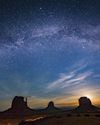
Unique North America
See a side to the USA and Canada beyond the big cities and discover incredible stories and special wildlife with our pick of the trips
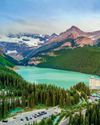
The call of the Rockies
From historic ski lodges to rustic backcountry cabins and a mock-Scottish castle, we pick the stays in Canada's Rocky Mountains that make the most of their setting

A new dawn for the Garifuna community
When the Garifuna people settled in Belize, they had to carry their traditions and culture with them; now a new trail is inviting visitors to explore this heritage through local communities
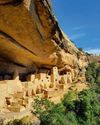
On the edge of history
In south-west Colorado lies the largest archaeological preserve in the USA, a series of vast cliff dwellings whose residents 'vanished' overnight. But was the answer to their disappearance in plain sight?

Tigers burning bright
As India celebrates 50 years of its Project Tiger conservation scheme, we visit the reserves of Madhya Pradesh to see how its success has impacted a tiger population that once looked in danger of disappearing
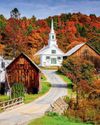
SEASON'S GREETINGS
From fiery fall foliage to art fairs and harvest festivals, opens up a wealth of across the USA and Canada autumn experiences

Waking a sleeping GIANT
A slow drive along the North Wales Way, from the English border to Anglesey, reveals not only a land of incredible local food and castles, but a region that is slowly reimagining itself

The rebirth of old JEDDAH
As efforts to restore Al-Balad, Jeddah's historical district, take hold, we get an exclusive peek at how art and culture are taking centre stage
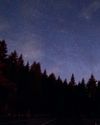
Star-studded escapes
Wilderness, history and wildlife combine at some of Britain's most iconic stargazing sites, as more and more travellers are looking to the heavens